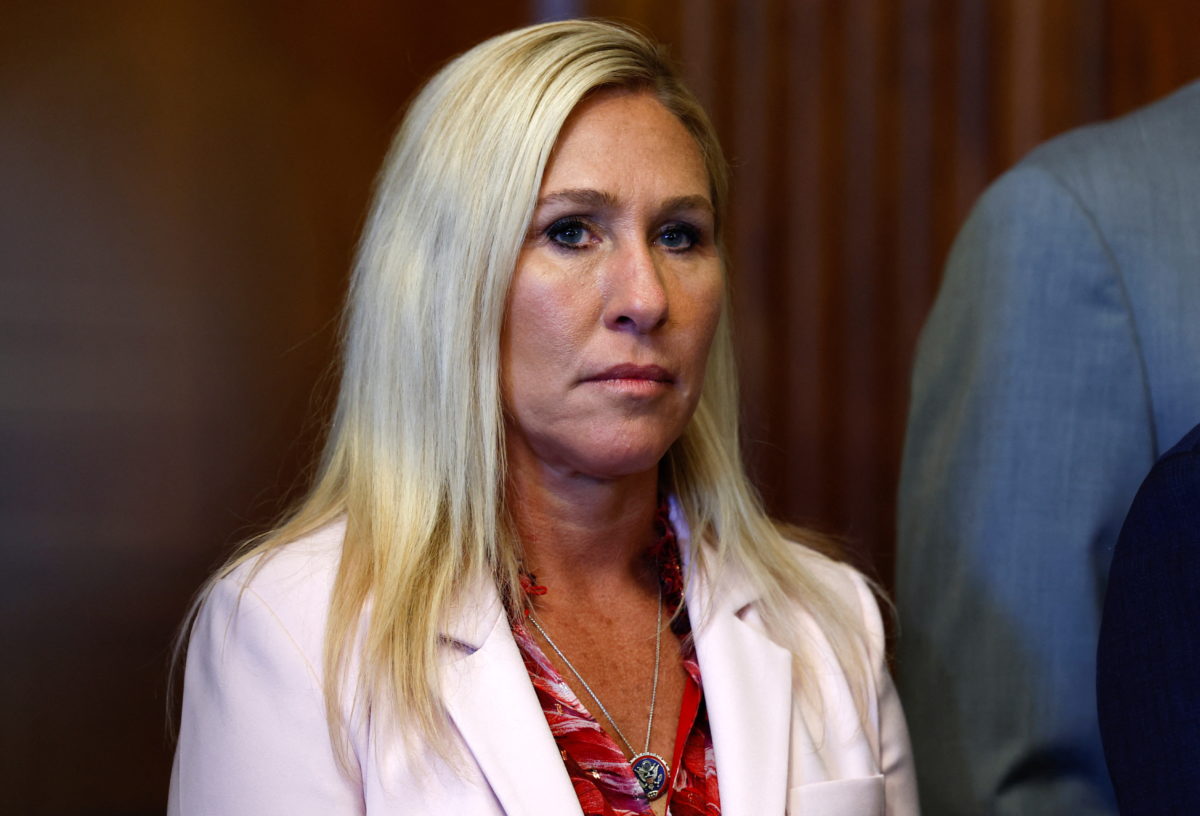Rep. Marjorie Taylor Greene (R-Ga.) stunned political observers on Sunday after publicly apologizing for her role in what she described as the “toxic politics” that have fueled bitter partisan divides in Washington. The apology came during an appearance on CNN’s State of the Union, marking one of the first times the outspoken conservative congresswoman has expressed regret for her combative approach to public life.
Her remarks arrive at a moment of high tension within the Republican Party, following President Donald Trump’s announcement that he would no longer endorse her in future elections. Greene’s public mea culpa adds yet another layer to a political shift few saw coming — one where a key figure in the Trump-era populist movement is now calling for civility.
A Rare Apology from One of Congress’s Most Polarizing Figures
During the interview, Greene appeared noticeably more reflective than usual. She looked directly into the camera and delivered a statement that surprised both allies and critics.
“I would like to say humbly, I’m sorry for taking part in the toxic politics,” Greene said.
She went on to acknowledge that the harsh rhetoric and unyielding partisan hostility that have defined recent years have taken a toll on the nation.
“It’s very bad for our country,” she added, stating that the constant cycle of outrage and conflict has distracted Americans from real issues and eroded trust in government institutions.
Greene — known for aggressive confrontations, fiery speeches, and a confrontational social media presence — framed her apology not as a retreat from her beliefs, but as an acknowledgment that the way political battles are fought must change.
WATCH:
Greene Calls for More Kindness and Common Ground
Echoing themes rarely heard from her before, Greene said she wants to promote a different tone moving forward. The congresswoman emphasized that Americans actually have far more in common than the public discourse suggests. According to her, the overwhelming negativity dominating political conversation has overshadowed shared concerns such as economic stability, community safety, education, and national unity.
While she did not specify what future actions she intends to take to improve the tone of political debate, she stated her hope that leaders on both sides of the aisle could follow suit.
Her message suggests that she views her apology not simply as a personal statement, but as an invitation for broader change.
Tension With Trump Looms Over Greene’s Shift in Tone
The timing of Greene’s apology appears closely intertwined with her recent conflict with President Donald Trump.
After years of alliance and unwavering loyalty, Greene and Trump have engaged in a string of public disagreements. Though details of their private conversations remain unclear, multiple reports indicate the relationship between the two has deteriorated in recent months. The breaking point came when Trump announced that he would no longer endorse Greene — a stunning reversal for a representative who once campaigned as one of Trump’s fiercest defenders.
For Greene, whose political identity has been deeply tied to Trump-era populism, losing the support of the former president represents a significant political blow, especially in a Republican Party still shaped heavily by his influence.
While Greene did not directly attribute her apology to the growing rift with Trump, many political analysts will undoubtedly interpret her remarks as an attempt to recalibrate her image and broaden her appeal, particularly ahead of future elections.
Why the Apology Matters: A Shift in the GOP’s Populist Wing?
Greene’s comments carry weight not only because of her visibility but also because of what she represents. For years, she has been both a symbol and a leader of the hardline faction within the Republican Party — a faction that embraced confrontations, rhetorical combat, and a scorched-earth approach toward political opposition.
Her sudden call for kindness and unity raises several questions:
-
Is Greene trying to rebrand herself amid changing political currents?
-
Is she attempting to mend relationships within the GOP?
-
Is this part of a broader effort by Republicans to soften their messaging following recent electoral consequences?
-
Or does this signal a personal evolution brought about by political isolation?
Political observers will watch closely to see whether Greene’s apology marks a long-term shift or simply a momentary recalibration.
Reaction from Allies and Critics
Responses to Greene’s apology began pouring in within minutes of the interview.
Supporters Split
Some supporters welcomed the change in tone, saying the country needs less confrontation and more cooperative leadership. Others expressed skepticism, suggesting Greene’s remarks were motivated by political strategy rather than personal conviction, especially given her recent fallout with Trump.
Democrats Reaction
Some Democrats dismissed the apology as too little, too late, pointing to Greene’s long record of controversial statements and confrontational behavior. Others cautiously welcomed the shift, noting that any move away from inflammatory politics is a step in the right direction.
Former Trump Allies Weigh In
Conservative commentators aligned with Trump were divided. A few suggested Greene’s comments revealed weakness, while others said tensions between Trump and Greene should not overshadow Republican priorities.
The Road Ahead: Can Greene Redefine Herself?
Apologies are rare in modern politics — especially from figures known for doubling down rather than backing away. Greene’s remarks now pose a new challenge for her: proving they were sincere.
To start rebuilding relationships and trust, she may need to demonstrate:
-
A shift in public statements
-
A reduction in inflammatory attacks
-
A willingness to work across the aisle
-
A focus on policy rather than personal conflict
Her future actions will determine whether voters and colleagues view her apology as meaningful or merely tactical.
Conclusion: A Turning Point or Temporary Pause?
Marjorie Taylor Greene’s apology for engaging in “toxic politics” marks a striking moment in her career and adds another unexpected twist to ongoing tensions within the Republican Party. Whether her comments signal a genuine change of heart or an attempt to stabilize her political footing remains to be seen.
But her words landed with enough weight to spark a national conversation — one centered not on scandal or outrage, but on the possibility of political leaders taking responsibility for the state of modern discourse.
For now, Greene has opened the door to a different type of political conversation. What happens next will depend on how she chooses to walk through it.

Emily Johnson is a critically acclaimed essayist and novelist known for her thought-provoking works centered on feminism, women’s rights, and modern relationships. Born and raised in Portland, Oregon, Emily grew up with a deep love of books, often spending her afternoons at her local library. She went on to study literature and gender studies at UCLA, where she became deeply involved in activism and began publishing essays in campus journals. Her debut essay collection, Voices Unbound, struck a chord with readers nationwide for its fearless exploration of gender dynamics, identity, and the challenges faced by women in contemporary society. Emily later transitioned into fiction, writing novels that balance compelling storytelling with social commentary. Her protagonists are often strong, multidimensional women navigating love, ambition, and the struggles of everyday life, making her a favorite among readers who crave authentic, relatable narratives. Critics praise her ability to merge personal intimacy with universal themes. Off the page, Emily is an advocate for women in publishing, leading workshops that encourage young female writers to embrace their voices. She lives in Seattle with her partner and two rescue cats, where she continues to write, teach, and inspire a new generation of storytellers.









